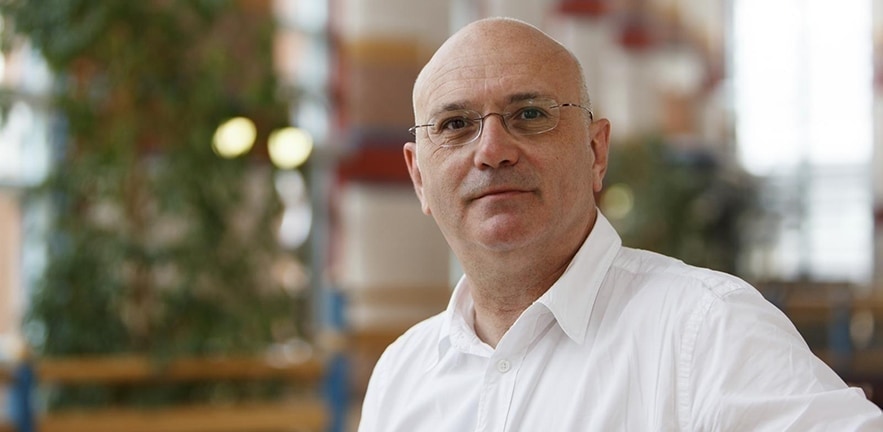A new prize at Lucy Cavendish College named after Cambridge Judge faculty member Professor Neil Stott, the Stott Alternative Futures Prize, awards speculative fiction that reimagines a better tomorrow.
A new prize for speculative fiction, the Stott Alternative Futures Prize, has been inaugurated at Lucy Cavendish College, named after Cambridge Judge Business School faculty member and Lucy Cavendish Fellow Professor Neil Stott.
“Speculative fiction has long provided the resources to explore, explain, and reimagine the future of society, and to cast new light on the present,” says an announcement of the new prize, adding that authors ranging from Isaac Asimov to Margaret Atwood have crafted speculative fiction that is able to “knit together technological, social, and individual questions” through imaginative vocabularies.
Lucy Cavendish students in any discipline can enter, with a limit of 4,000 words and judging by a panel of Fellows and other specialists. Entries can be submitted until 8 May, and the prize will be awarded later in May. The prize is administered through Lucy Cavendish Colleges Writing Centre.
Imagining possible futures through prose
The prize defines speculative fiction “very broadly to be any creative or imaginative writing interested in possible futures” which could be a short story or extract from a longer piece of fiction.
Says Neil Stott, Management Practice Professor of Social Innovation and Co-Director of the Cambridge Centre for Social Innovation at Cambridge Judge Business School:
“The prize is rooted in my worry that we will lose our ability to think of alternatives and how to organise for social justice in the face of complex, species-annihilating events such as the climate emergency. The prize aims to stimulate alternative thinking, rather than being locked into end-of-times narratives with no positive way out.
Thinking about alternatives to dark days
“I was an avid reader of speculative fiction, and it sustained me during the 1980s protesting against nuclear weapons and as a Peace Studies student – dark days when we felt the end of the world was exceptionally nigh. Thinking about alternatives can reignite your agency to do something, anything to make a difference.
“Today we are in urgent need of alternatives to galvanise a world that is struggling to break free of fossil fuels and faces immense change as climate events increase in severity” says Neil.


